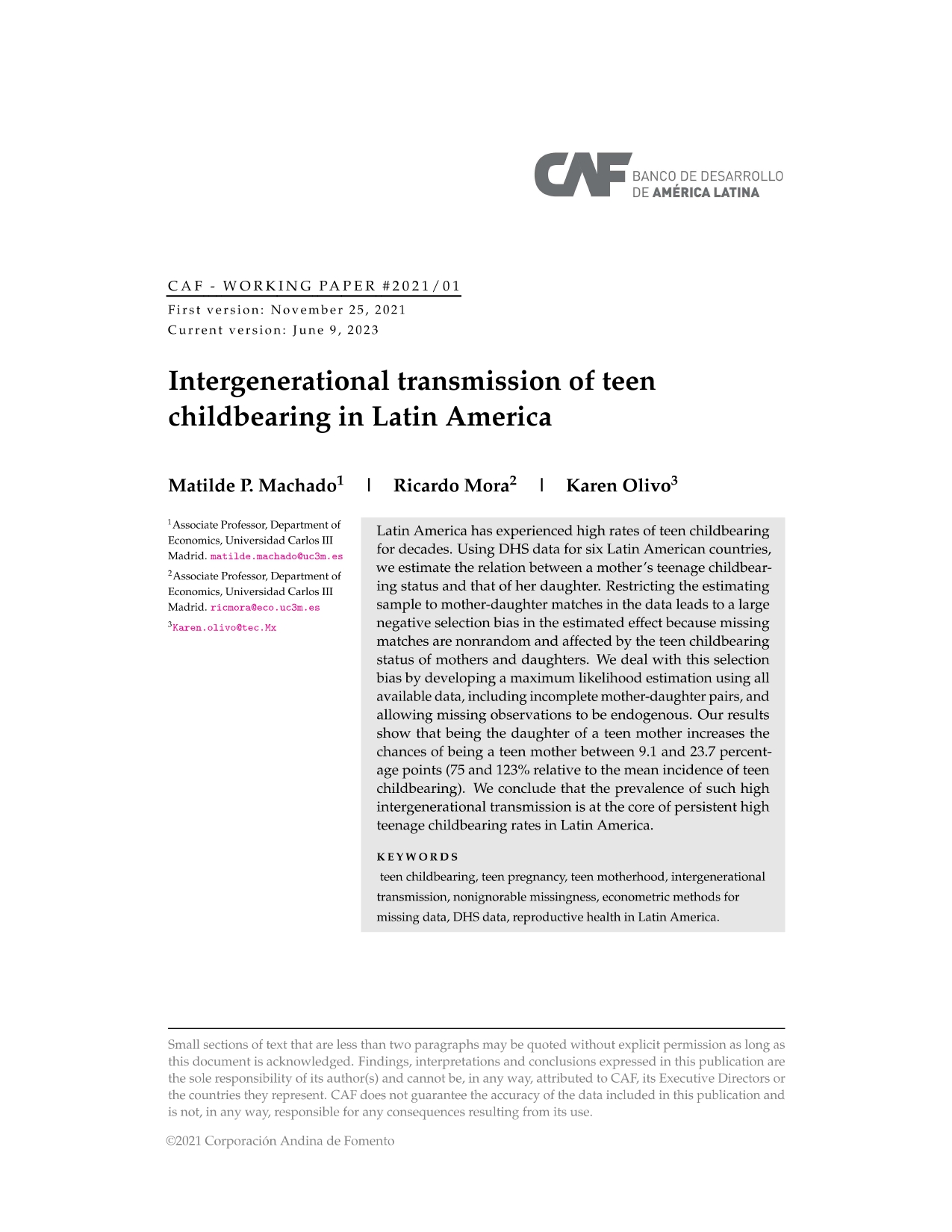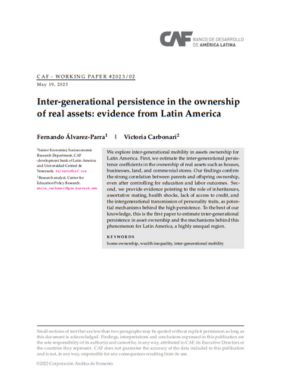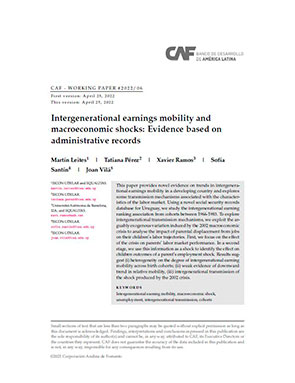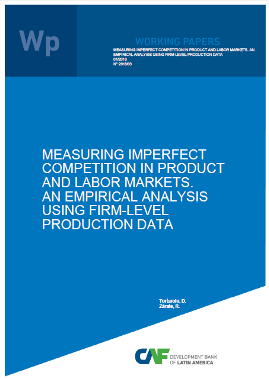Intergenerational transmission of teen childbearing in Latin America
Resumen
Using DHS data for six Latin American countries, we estimate the relation between a mother’s teenage childbearing status and that of her daughter. Restricting the estimating sample to mother-daughter matches in the data leads to a large negative selection bias in the estimated effect because missing matches are non-random and affected by the teen childbearing status of mothers and daughters. We deal with this selection bias by developing a Maximum Likelihood estimation using all available data, including incomplete mother-daughter pairs, and allowing missing observations to be endogenous. Our results show that being the daughter of a teen mother increases the chances of being a teen mother between 8.7 and 26.2 percentage points (between 61 and 172%). We conclude that the prevalence of such high intergenerational transmission is at the core of persistent high teenage childbearing rates in Latin America and suggests alternative public policy fixes. Latin America has experienced high rates of teen childbearing for decades. Using DHS data for six Latin American countries, we estimate the relation between a mother’s teenage childbearing status and that of her daughter. Restricting the estimating sample to mother-daughter matches in the data leads to a large negative selection bias in the estimated effect because missing matches are nonrandom and affected by the teen childbearing status of mothers and daughters. We deal with this selection bias by developing a maximum likelihood estimation using all available data, including incomplete mother-daughter pairs, and allowing missing observations to be endogenous. Our results show that being the daughter of a teen mother increases the chances of being a teen mother between 9.1 and 23.7 percent age points (75 and 123% relative to the mean incidence of teen childbearing). We conclude that the prevalence of such high intergenerational transmission is at the core of persistent high teenage childbearing rates in Latin America.
Materia
País / Región
Fecha
18/07/2023Citar de esta publicación
Item perteneciente a la Colección

Autor
Machado, Matilde P.Mora, Ricardo
Olivo, Karen
Items Relacionados
Inter-generational Persistence in the Ownership of Real Assets: Evidence from Latin America
We explore inter-generational mobility in assets ownership for Latin America. Our findings confirm the strong correlation between parents and offspring ...
Intergenerational earnings mobility and macroeconomic shocks: Evidence based on administrative records
This paper provides novel evidence on trends in intergenerational earnings mobility in a developing country and explores some transmission mechanisms ...
Measuring Imperfect Competition in Product and Labor Markets. An Empirical Analysis using Firm-level Production Data
In this paper, we develop a simple theoretical model that allows us to disentangle empirically the extent of imperfect competition in product and labor ...




